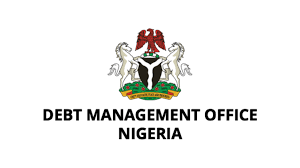Abuja – Nigeria’s total public debt has climbed to N144.67 trillion as of December 31, 2024, according to a fresh report released by the Debt Management Office (DMO). This figure shows a sharp 48.58% rise from the N97.34 trillion recorded at the end of 2023.
The increase, which amounts to a difference of N47.32 trillion over 12 months, reflects Nigeria’s growing dependence on both local and foreign borrowing to finance government projects and manage budget deficits.
Quarter by quarter, the debt also increased slightly by 1.65%, moving from N142.32 trillion at the end of September 2024 to the current figure in December.
According to the DMO, the surge in Nigeria’s debt stock was driven by a rise in both external and domestic debts. The country’s external debt rose by 83.89%, going from N38.22 trillion (about $42.50 billion) in December 2023 to N70.29 trillion (about $45.78 billion) by December 2024. This rise was due to new loans from abroad and the weakening of the naira, which made dollar loans more expensive in naira terms.
Domestic debt also went up, but at a slower rate—25.77%—growing from N59.12 trillion in December 2023 to N74.38 trillion in December 2024. The Federal Government’s share of this local debt increased from N53.26 trillion to N70.41 trillion, a 32.19% jump. This shows that the government is still relying heavily on borrowing from local sources to fund spending.
Meanwhile, debts owed by state governments and the Federal Capital Territory (FCT) actually dropped by 32.27%, from N5.86 trillion in 2023 to N3.97 trillion in 2024. This suggests that some state governments reduced their borrowing last year.
On a quarterly basis, between September and December 2024, external debt rose by N1.4 trillion, and domestic debt went up by N950 billion. The Federal Government’s domestic borrowing increased by N1.19 trillion during this period, while state and FCT domestic debt reduced by N240 billion.
By the end of 2024, domestic debt made up 51.41% of Nigeria’s total debt, while external debt stood at 48.59%. The Federal Government held N70.41 trillion in domestic debt and N62.92 trillion in foreign debt. States and the FCT held N3.97 trillion in domestic debt and N7.37 trillion in foreign debt.
Analysts are now warning that the country’s rising debt, especially in foreign loans, could create serious problems if the naira continues to fall. With the current exchange rate challenges, the cost of paying back these loans could rise significantly, putting extra pressure on government finances.
